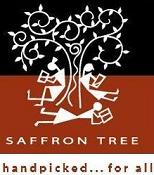A Is For Anand Giridaradas
Author: utbt15 Mar 2011
I must confess, I am not a non-fiction person. The only non-fiction books I read are text books or books related to Early Childhood Education. Even these books, I survive because I do not have to read them from cover to cover. I flip through the book, pick topics that interest me and read snippets. Or I look for for something in particular, like a reference or the author opinion. To complete a book in this fashion means that I need to own the book and over a period of time, I would have read everything the book has to offer.
Of the books I read recently, India Calling is one of the few non-fiction books that has nothing to do with Early Childhood Education. The reason I liked this book is because, India is a land of contradictions and Anand Giridaradas not only put this in to words in an effective manner, but he also shows how two opposing ideas can co-exist.
Once I was coaching an American colleague on the appropriate style to greet people in India. She asked me if she can say something to effect of ‘you look like you are in great health’ or ‘your child is big for her age’, I don’t remember her exact words. I launched in to the phenomenon of evil eye and how a remark about size, especially a child’s can be considered as a mark of evil eye. The bewildered colleague, who obviously insinuated nothing evil, asked if the appropriate thing to say is something the opposite. So I had to tell her that such a remark will not be well received. The thoroughly confused colleague threw her arms up in the air because she was lost!
Look closely, there are numerous such contradictions. India is perhaps the only place where there are always generalizations and always exceptions to any generalization. Women are worshipped as goddess, but they are target of sexism. Women are repressed, but can be elected to the highest offices in the country. The society preaches commonality/blending in, but is constantly looking for a leader. India is a high context culture, big on social knowledge and non-verbal cues, but we have detailed manuscripts that details how every man/woman/king/commoner/first born child/last born child/daughter/wife/widow/mother must behave.
The Anand’s perspective as an outsider, on the surface level inconsistencies, how India is progressing and to what it is progressing towards is very intriguing. Sometimes it takes an outsider to see things more clearly. Good read. Thumbs up.

 (No Ratings Yet)
(No Ratings Yet)
One Response for "A Is For Anand Giridaradas"
Now, this review wants to me to go read the book!
Leave a reply